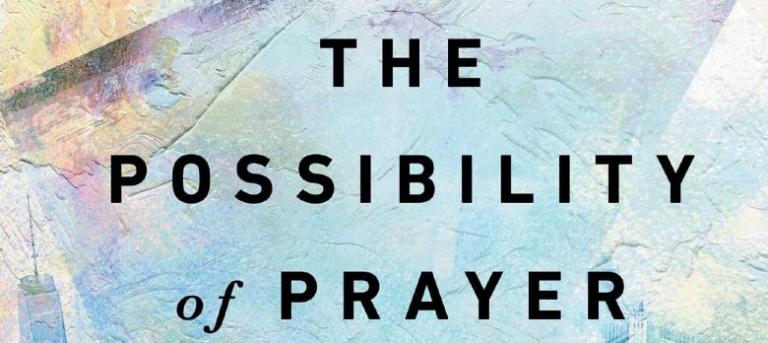
Every once in a while, you read a book at the perfect time. When COVID lockdowns started last year, I thought about how much I was going to read and how much I was going to write. Instead, like many, I developed poor habits that made it more difficult for me to concentrate, read, write, and work. Coming out of this malaise, I was finally able to read Drew Dyck’s Your Future Self Will Thank You.
Dyck speaks about the virtue which lays at the foundation of all of the virtues, self-control. Without self-control, our growth in grace, in cultivating virtue, and in making progress in personal growth would be impossible. Diving into relevant passages of Scripture and referencing the latest insights from brain science, he helps us learn the importance of self-control and how we can begin to cultivate this foundational virtue. These were my favorite quotes from Your Future Self Will Thank You.
“Self-control isn’t just one good character trait, a nice addition to the pantheon of virtues. It’s foundational. Not because it’s more important than the other virtues, but because the others rely on it.” (15)
“Defeating the enemy beyond your walls is hard; subduing the enemy within is harder.” (18)
“Biblical self-control isn’t about proud self-reliance or earning your way to heaven. It’s not somehow nullified by grace. You will find no asterisks by the biblical exhortations to exercise self-control. What you will find is a truckload of commands to resist evil, flee lust, avoid temptation, abstain from sin, control your tongue, guard your heart, and, most graphically, kill the flesh.” (20)
“The Bible portrays self-control not as restrictive, but rather as the path of freedom.” (20)
“Self-control is the ability to do the right thing, even when you don’t feel like it.” (33)
“There’s a cruel irony that comes into play whenever we value something above God. If we prioritize happiness above all else, we will never find happiness. If we grant marriage or family or work the highest place in our hearts, we end up hurting those too. These are all good things, but they were never meant to bear the full weight of our ultimate allegiance.” (40)
“Being self-controlled enables us to suspend our interests enough to truly love others.” (41)
“Ultimately, self-control isn’t about you. It’s about surrendering to God’s purposes for you. And it’s not about getting success or money or power. In the end, it’s about love.” (42)
“How can we be so selfless one moment and so stupid and sinful the next? Genesis provides a rather elegant answer. Our capacity for selflessness and splendor comes from the fact that we were made in the image of God. Our sinfulness and stupidity? That traces back to the fall.” (61)
“According to (David) Brooks, it was this consciousness of sin that allowed people to cultivate virtue. That might seem like a strange argument. How could having a dim view of human nature enable people to become more virtuous? Because once they were conscious of their sinful nature, they could take steps to fight against it.” (65)
“Accepting the biblical vision of human nature arms you with a sober self-awareness. It makes you wary of your impulses and desires. It helps you realize that you need wisdom and divine help to resist temptations and pursue righteousness. Ultimately, it’s the first step to leading a self-controlled life.” (66)
“We don’t need exotic tools or secret knowledge to defeat him. When we resist temptation, Satan flees.” (68)
“Ultimately, what Jesus will receive from His Father will vastly surpass anything Satan can offer. But it will require faith and humility, patience, and trust. Jesus always opts for the slower, harder way.” (70)
“Ego depletion has implications for battling temptations too. Actually, it means that “battling temptation is usually a bad idea. It’s easy to imagine that if we can fend off temptation once, we can do it again. But we’re often weaker the second time ’round. Perhaps that’s why Scripture urges us to flee temptation.” (82)
“Knowledge doesn’t always translate into action.” (99)
“Habits start small. They begin with little actions. But over time they snowball.” (111)
“If you’re trying to build new habits in your life, introduce them one at a time.” (127)
“Sanctification is like sailing. Sailors can’t move without the wind, but that doesn’t mean they kick up their feet on the deck and wait to start moving.” (149)
“Studies show that people with an ‘anxious attachment’ to God are more likely to suffer from paranoia, neuroticism, and eating disorders like bulimia.” (155)
“The internet hasn’t created any new temptations. It’s just heightened the old ones that were there all along.” (168)
“I’d also read a sobering study showing that distraction from constant email and text messages resulted in a ten point temporary drop in IQ, more than double the loss of IQ points someone experiences while high on marijuana.” (173)
“A loss of self-control always results in a loss of freedom.” (207)
“You’ve seen it all before. You know he always gives you the best stuff upfront–and makes you pay for everything down the road. God, on the other hand, is more interested in your future self. He’s more concerned about you than your current level of comfort. He cares more about who you’re becoming than how you feel right now. And while the devil gives his best up front, God always saves his best for last.” (208)
“No, self-control isn’t the sexiest topic, but it’s vital. Cultivating it will not only improve your own life. It will bless the lives of everyone you know and love. So endeavor to live a life marked by self-control. Your future self will thank you. And others will too.” (214)
(You can read more of my favorite quotes from great books here.)
Related Posts:
“The Best Quotes from The Common Rule”
“The Best Quotes from The Prodigal Prophet”











